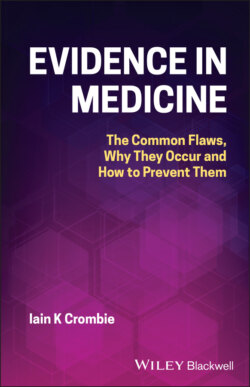Читать книгу Evidence in Medicine - Iain K. Crombie - Страница 37
Industry‐Funded Trials
ОглавлениеThe research funded by drug companies ‘produces innovative, life‐saving medicines’, but it also has a darker side [92]. A common finding is that trials funded by the pharmaceutical industry are more likely to report that the treatment was beneficial [93, 94]. One review study concluded that ‘pharmaceutical company sponsorship is strongly associated with results that favour the sponsor's interests’ [95]. Another author commented that ‘big pharma is more concerned about commercial interests than patient harm’ [96]. Editors of leading medical journals, and reviews by academic researchers, have heavily criticised the pharmaceutical industry for sponsoring trials whose results ‘favour the sponsors' interests’ [93, 97, 98]. As industry fund the majority of large international trials, and is particularly good at disseminating their findings [99], any bias in their studies could create serious problems for evidence. Many industry‐funded trials involve collaboration between industry and academia, although academics are often not involved in the data analysis [100]. An evaluation of the research practices of the pharmaceutical industry led to the conclusion that ‘those who have the gold make the evidence’ [101].
In general drug company studies are at not at a higher risk of bias in methods than other trials [93], so the explanation for the higher frequency of positive results must lie elsewhere. Other possibilities have been suggested. These include the more frequent use of surrogate outcomes, and publication bias, in which trials with negative findings are not published [93, 102, 103]. An analysis of head‐to‐head trials (which directly compare drug versus drug, rather than drug versus placebo) showed that 96.5% of trials favoured the drug manufactured by the company funding the study [104]. This may provide evidence of industry manipulation. An analysis of internal documents from the industry found that suppression of negative studies and spinning of negative findings were recognised techniques [105]. As one author suggested, allowing drug companies to generate evidence ‘is akin to letting a politician count their own votes’ [103].
